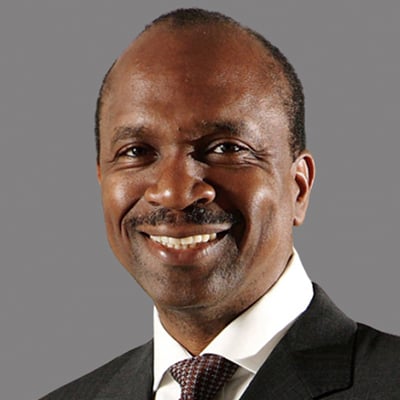Old Assumptions Die Hard
During the Washington, D.C.-area sniper reign of terror, many of us got nervous every time we saw a white man behind the wheel of a white box- type van. Supposed eyewitness accounts led us all to be on the lookout for a white van. Professional profilers and our own stereotyped views as to who commits what kinds of crimes led us to be on the lookout for a white man behind the wheel. That the eventual suspects did not fit the profile (they were two African-American men) was quite a surprise.
This kind of surprise ending also plays out in another arena prone to profiling: the courtroom. Jury selection by stereotypes is probably instinctive. The greatest trial lawyer in American history, Clarence Darrow, offered these words of advice to budding lawyers in 1936: "If a Presbyterian enters the jury box and carefully rolls up his umbrella, and calmly and critically sits down, let him go. He is cold as the grave; he knows right from wrong, although he seldom finds anything right. He believes in John Calvin and eternal punishment. Get rid of him with the fewest possible words before he contaminates the others; unless you and your clients are Presbyterians you probably are a bad lot, and even [if] a Presbyterian, your client most likely is guilty....The Methodists are worth considering; they are nearer the soil."
Today, no trial lawyer would rely on Darrow's religion-based stereotypes. But our generation of trial lawyers sees plenty of race- and gender-based stereotypes, though not so openly acknowledged as in Darrow's day. In truth, though, like the sniper profile, often one's expectation is quite different than the reality. Here are a few examples.
As my opposing counsel and I awaited a verdict in a Queens, N.Y., courtroom several years ago, we passed the time by speculating on what was going on in the jury room. He believed that the only white juror, a female Republican, would surely vote for my client (the defendant in a products liability case) whereas the other jurors (all minorities) would vote for his client, the plaintiff, a minority. I agreed with his assessment as to the white Republican juror, but believed that we could also count on some of the minority jurors. We were both surprised when it turned out that the only juror who voted for the plaintiff was the white Republican. All of the minority jurors voted for my corporate client. Go figure.
An equal deviation from stereotyped expectations occurred in a case I tried in New Orleans. There, the surprising juror fit the profile of a pro-plaintiff juror (in a products liability case). She was a young, unemployed, black single mother. But not only did she vote for the defense, and against the African-American plaintiff, but she was an enthusiastic defense supporter. I expect that most defense lawyers would not have gotten past the profile and would have stricken her, Batson or no Batson. Perhaps it was her vote for the defense that led the plaintiff's lawyer to break into tears in open court, sobbing uncontrollably.
Battle of the sexes
If women are from Venus and men are from Mars, then the recent result in a Rhode Island lead-paint trial, tried by one of my former partners, may require a reorienting of the planets. The plaintiffs argued, with great emotion, that lead-based paint in Rhode Island is a public nuisance because of the number of children with elevated blood-lead levels. Their closing argument was an appeal to "do this for the children." They also appealed directly to women and mothers-the jury consisted of five women and one man, the man being a retired major.
The result? All but one of the women rejected the plaintiffs' case and the lone male-the major-was the strongest plaintiff supporter, telling the press that the jury "let the children down."
My brother, a plaintiffs' and criminal defense lawyer, was feeling pretty good when he drew a jury of three blacks and seven whites (with a black man as the foreman) in a murder case involving an African-American male defendant. Post-trial interviews revealed that some of the white jurors favored a manslaughter conviction while, counter to the stereotype, the African-American foreman convinced the jury to convict on the second-degree murder charge.
With apologies to Clarence Darrow, stereotypical profiles often do not fit, and lawyers who rely on them may be in for a big surprise-as so many of us were with the alleged snipers. In this post-Enron world, jury consultants now warn lawyers to beware of the "angry white male": This usually reliable corporate vote now feels betrayed by corporate America. (Some women and minorities no doubt would say welcome to the club). The bottom line is that increasingly, Americans have common experiences and associations, making it ever more unreliable to generalize inside the courtroom and outside of it as well.
Michael Jones is a partner in the Washington, D.C., office of Chicago-based Golden Flag. He is a nationally recognized trial lawyer, focusing on mass torts and products liability cases.
This article is republished with permission from law.com and the December 2, 2002 edition of The National Law Journal. c 2002 NLP IP Company


